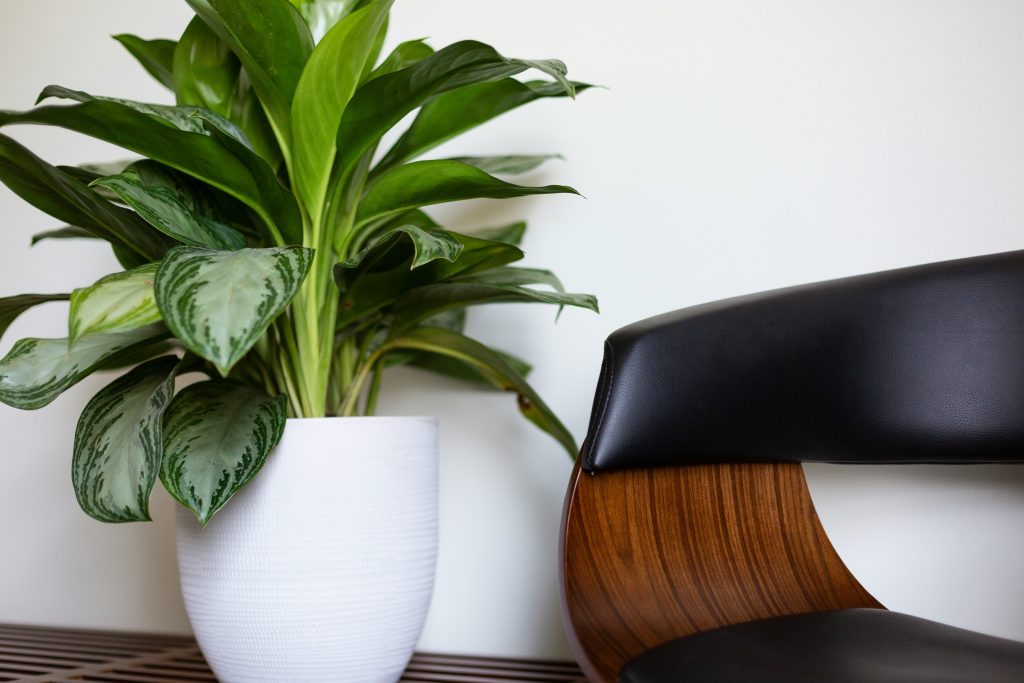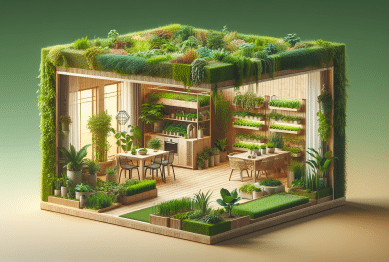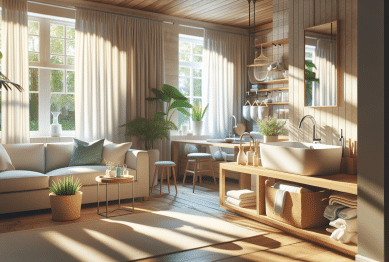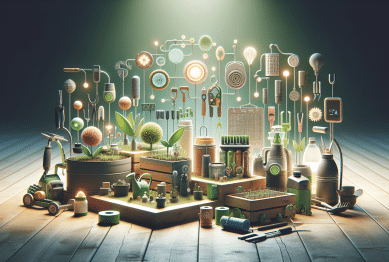Houseplants are no longer just for decoration—they’ve become essential to modern living, offering numerous health benefits. With wellness trends on the rise, houseplants are taking center stage as natural companions that improve your environment and well-being. Whether you’re looking to purify the air, reduce stress, or simply brighten your space, houseplants for health are the perfect addition. In this article, we’ll explore the many ways houseplants can enhance your health, discuss the latest trends in plant care, and highlight the best plants to bring home.

1. The Health Benefits of Houseplants
Houseplants aren’t just aesthetically pleasing; they bring real health benefits to your home. Scientific studies reveal that houseplants for health can improve air quality, reduce stress, and even boost productivity. As more people embrace remote work and indoor living, these benefits are becoming more relevant than ever.
- Air Purification: One of the primary benefits of houseplants is their ability to cleanse the air. NASA’s Clean Air Study found that certain plants can remove up to 87% of toxins from the air within 24 hours. Popular air-purifying plants include the snake plant, peace lily, and English ivy, which help eliminate harmful pollutants like formaldehyde, benzene, and ammonia.
- Mental Well-being: Houseplants have been shown to improve mood and reduce stress. Research from the Journal of Physiological Anthropology demonstrated that interacting with houseplants can lower psychological stress and induce relaxation. By simply being around houseplants for health, you can create a calming atmosphere that promotes mental clarity and emotional balance.
- Humidity Control: Houseplants also act as natural humidifiers, releasing moisture into the air. This can be especially beneficial in winter months when indoor air becomes dry, potentially leading to respiratory issues and dry skin. Plants like the spider plant and peace lily are excellent choices for improving indoor humidity levels.
By incorporating houseplants for health into your space, you’re not only improving your home’s air quality but also creating a healthier and happier living environment.
2. Emerging Trends in Houseplant Care
As the popularity of houseplants continues to grow, new trends in plant care are emerging. These trends make it easier to care for houseplants for health and help them thrive in your home.
Smart Plant Technology
Technology is making its way into plant care, allowing even the busiest individuals to maintain healthy houseplants. Devices like smart pots and moisture sensors monitor your plants’ needs, alerting you when it’s time to water or adjust the light. Some smart pots even self-water, ensuring that your houseplants for health receive the proper care even when you’re away.
This technology is particularly helpful for beginners or anyone with a hectic schedule, as it takes the guesswork out of plant maintenance. You can keep your plants healthy without constant attention.
Sustainable Plant Care
Sustainability is a hot topic across many industries, and houseplant care is no exception. Many people are now seeking eco-friendly ways to grow and care for their plants. This includes using organic soil, composting plant waste, and selecting biodegradable or recycled pots. Upcycling is another popular trend—people are repurposing household items like glass jars and old containers to create unique planters for their houseplants for health.
Choosing sustainable options not only benefits the environment but also aligns with a growing desire for a more eco-conscious lifestyle. It’s a simple way to ensure that your plant care routine is both green and responsible.
Biophilic Design
Biophilic design is an emerging trend that focuses on incorporating natural elements into interior spaces to improve well-being. Adding houseplants for health is one of the easiest ways to implement biophilic design in your home. This design philosophy is based on the idea that humans have a deep connection to nature, and bringing elements like plants indoors can improve mental health, creativity, and overall happiness.
By integrating houseplants for health into your space, you’re creating an environment that promotes relaxation, focus, and a sense of well-being.
3. Top Houseplants for Health and Well-being
Not all plants offer the same health benefits. Some houseplants are especially effective at improving air quality, reducing stress, and boosting mood. If you’re looking to add houseplants for health to your home, here are some top choices to consider:
Snake Plant (Sansevieria)
The snake plant is one of the best air-purifying plants you can find. It’s known for its ability to filter out toxins like formaldehyde and benzene, and it’s also a great choice for the bedroom because it releases oxygen at night. Snake plants thrive in low light and require minimal care, making them perfect for busy individuals or beginners.
Spider Plant (Chlorophytum comosum)
The spider plant is another low-maintenance plant that’s highly effective at removing harmful chemicals from the air. It’s a fast-growing plant with cascading green leaves, adding both visual appeal and health benefits to any room. It’s also safe for pets, making it a great option for animal lovers.
Peace Lily (Spathiphyllum)
Peace lilies are excellent air purifiers that remove mold spores and other toxins from the air. They thrive in low-light conditions, making them perfect for bathrooms or damp areas. In addition to their air-purifying properties, peace lilies also increase indoor humidity, helping to keep the air in your home healthy and balanced.
Aloe Vera
Aloe vera is not only known for its air-purifying abilities but also for its healing properties. The gel inside its leaves can soothe burns and skin irritations, making it a great addition to your home. Aloe vera plants prefer bright, indirect light and are easy to care for, needing only occasional watering.
These houseplants for health are all easy to maintain and offer a wide range of benefits for your home and well-being.
4. Caring for Your Houseplants for Health
If you’re new to the world of houseplants, taking care of your new “health friends” doesn’t have to be complicated. With a few simple tips, you can ensure that your houseplants for health thrive and bring maximum benefits to your home.
Light Requirements
Different plants have different light needs. Some plants, like snake plants, can tolerate low light, while others, like aloe vera, prefer bright, indirect sunlight. It’s important to research each plant’s light requirements and place them in the appropriate spot in your home to ensure they get the right amount of light.
Watering
Overwatering is one of the most common mistakes in plant care. Many houseplants for health, such as snake plants and peace lilies, prefer their soil to dry out between waterings. Make sure to check the soil before watering and use pots with proper drainage to prevent root rot.
Repotting
As your plants grow, they’ll need more space. Repotting your plants every one to two years allows them to expand their roots and continue thriving. Choose a pot that’s one size larger and use fresh soil to support healthy growth.
5. Why Houseplants for Health Are a Must-Have
Houseplants have quickly become a wellness trend that goes beyond simple decoration. With their ability to improve air quality, boost mood, and reduce stress, houseplants for health are a perfect addition to any home. Whether you’re a seasoned plant enthusiast or a beginner, these plants offer a natural way to enhance your living space and promote well-being.
Incorporating houseplants for health into your home is an easy yet impactful way to improve your health, mood, and environment. So, are you ready to bring some new “health friends” into your life?
References
- Wolverton, B. C. (1997). How to Grow Fresh Air: 50 Houseplants That Purify Your Home or Office. Available at: Amazon.
- Costa, T. (2021). Indoor Plant Care 101: Simple Steps for Thriving Plants. Available at: Amazon.
- Verner, A. (2019). The Houseplant Expert. Available at: Amazon.
- NASA (1989). Interior Landscape Plants for Indoor Air Pollution Abatement. Available at: NASA.
- Robinson, S. (2018). The Minimalist Gardener: Sustainable Plant Care for Modern Homes. Available at: Amazon.









